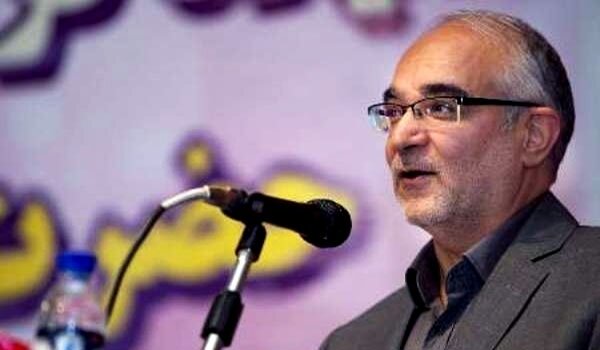Deputy Majlis speaker: Tanker seizure not to affect Iran’s JCPOA decisions

TEHRAN – Deputy Majlis speaker Abdolreza Mesri has said Britain’s seizure of an Iranian oil tanker in Gibraltar will not dissuade Tehran from reducing its nuclear undertakings in response to the West’s disloyalty.
The oil tanker was seized on July 4 in an operation involving British Royal Marines. It was captured under the allegation that it was carrying crude oil to Syria in breach of EU sanctions.
Royal Gibraltar Police arrested the captain and his deputy on Thursday, while two second officers of the Grace 1 tanker were held on Friday.
According to Press TV, Spain, which challenges the British ownership of Gibraltar, has said the seizure was prompted by a U.S. request to Britain and appeared to have taken place in Spanish waters.
Iran has condemned the seizure as “maritime piracy,” vowing to employ all its political and legal capacities to secure the release of the vessel.
Top Iranian figures have called for retaliatory measures against the British government.
Secretary of the Expediency Council Mohsen Rezaee has proposed that Iran should seize a British oil tanker if London doesn’t release the tanker.
“The Islamic Revolution has never been an initiator of tension during its 40-year-old history, however, it has not hesitated to respond to bullies and thugs,” Rezaee tweeted after the incident.
Rezaee, the former IRGC chief, added, “If Britain doesn’t return the Iranian tanker, the duty of responsible [Iranian] bodies is to seize a British oil tanker in a retaliatory measure.”
In remarks on Tuesday, Mesri said, “The Westerners think that if one millions barrels of our oil remains on the sea for a while, it can affect Iran’s nuclear deal decisions, but they will understand that they should release the cargo after a while.”
He said based on the reciprocation bill, the Iranian government is required to scale down its nuclear undertakings, but the Western states are seeking to derail the attention of Iranian officials through such troubling moves.
“The Islamic Republic, meaning all branches of power, are in consensus over the decision to go ahead with the nuclear deal step-back decisions and such moves may not leave the slightest impact on our decisions,” Mesri underscored, according to Fars.
Washington withdrew from the internationally-endorsed 2015 nuclear deal with Iran on May 2018, reimposed the toughest-ever sanctions against the country and started a plan to zero down Tehran’s oil sales.
Since the U.S. move, European parties to the deal, namely France, Britain and Germany, have been criticized by Tehran for their lack of will to directly confront the U.S. sanctions.
However, exactly one year after the United States left the nuclear deal, Tehran announced that its “strategic patience” is over and announced a partial withdrawal from some aspects of the nuclear pact.
The announcement, which was declared by the Supreme National Security Council, stated that the country would no longer adhere to some of the limits on its nuclear activities as long as sanctions are in place.
Earlier this month, Iran officially announced it has started enriching uranium to a higher purity than the 3.67%. The move came after the Europeans missed a 60-day deadline by Tehran to devise a concrete mechanism to protect Iran from the U.S. sanctions.
MH/PA
